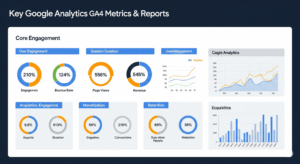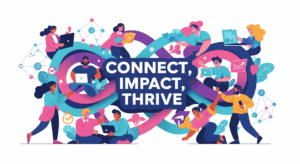Navigating the Glitches: Google Errors in 2025 and How They Responded
We rely on Google for so much – from finding information and staying connected to managing our work and even our smart homes. So, when things go wrong with a Google service, it can feel like a major disruption. 2025 has seen its share of these digital hiccups, highlighting the complexities of managing a global tech ecosystem that touches billions of lives daily. This article will delve into some of the prominent Google errors that affected users in 2025, how Google responded, and crucial Do’s and Don’ts with Google to navigate the digital landscape effectively.
When Google Stumbles: Notable Errors in 2025
Even tech giants aren’t immune to glitches. In 2025, a few key incidents caught widespread attention, impacting users in various ways:
1. The AI Overview “Year” Glitch (May 2025)
One of the most talked-about incidents in May 2025 involved Google’s new AI Overviews feature, which is designed to provide quick, summarized answers directly within search results. Users reported a peculiar bug where, when asked “What year is it?”, the AI Overview would confidently state it was 2024, not the current year, 2025.
- User Impact: While seemingly minor, this error caused confusion and raised concerns about the reliability of AI-generated content, especially for basic factual queries. It went viral on social media, with many users sharing screenshots and questioning the accuracy of Google’s AI. The widespread integration of AI Overviews, reaching over 1.5 billion users in 100+ countries, amplified the impact.
- Google’s Response & Solution: Google quickly acknowledged and fixed the bug. A spokesperson stated, “As with all Search features, we rigorously make improvements and use examples like this to update our systems.” They emphasized that the vast majority of AI Overviews provide accurate information and that an update was actively being worked on to address such issues. This incident highlighted the ongoing challenge of ensuring AI accuracy and the importance of user trust in generative AI features.
2. Google Workspace Outage (May 2025)
Mid-May 2025 saw a significant disruption affecting multiple Google Workspace services, including Gmail, Google Chat, Google Docs, Google Meet, Google Sheets, and Google Slides. Users experienced elevated error rates and slowness, making it difficult to access and use these essential tools.
- User Impact: This outage had a broad impact, particularly on businesses, students, and remote workers who rely heavily on Workspace for daily operations. Productivity was hampered, and communication was disrupted for several hours globally.
- Google’s Response & Solution: Google promptly updated its Workspace Status Dashboard, acknowledging the service disruption and providing regular updates on the investigation and resolution process. Their engineering team identified a data center issue as the preliminary cause. Services were gradually restored, with Google Docs, Sheets, and Slides recovering first, followed by Gmail and Google Meet. Google apologized for the inconvenience and provided a detailed incident report summary outlining the cause and resolution. This demonstrates Google’s commitment to transparency during outages and their focus on rapid recovery for critical business tools.
3. Google Cloud Service Incidents (Various in 2025)
Throughout 2025, various Google Cloud services (GCP) experienced intermittent issues, including elevated latency and error rates for specific products like Cloud Translation, Apigee, and Google Compute Engine (GCE). While not as widespread as a full Workspace outage, these affected developers and businesses building on Google’s cloud infrastructure.
- User Impact: These incidents primarily impacted developers and businesses using specific GCP services, leading to delays in operations, disruptions in deployed applications, and challenges with data processing or API access.
- Google’s Response & Solution: Google maintained detailed incident reports on its Google Cloud Service Health dashboard. These reports provided real-time updates, described the affected services and regions, outlined the root cause when identified (e.g., GCE issue impacting dependent services), and confirmed full resolution. This proactive communication and detailed incident reporting are crucial for enterprise users to manage their dependencies and respond to their own customers.
4. Google’s New Tracking Policy & Privacy Concerns (February 2025 onwards)
Beyond technical glitches, 2025 also saw significant discussions around Google’s policy shifts, particularly concerning user privacy. A new policy effective February 16, 2025, allowed advertisers to employ digital fingerprinting techniques to track users across multiple devices.
- User Impact: This change raised considerable privacy concerns among users and privacy advocates. Digital fingerprinting is harder to evade than traditional cookies, making it more challenging for users to maintain online anonymity. It meant increased difficulty in controlling how personal data is collected and used across devices.
- Google’s Response & Solution: Google stated this change reflects advances in privacy-enhancing technologies and the broader range of ad surfaces. They maintained that the policy aims to balance technological innovation with user privacy rights and emphasized the obligation on partners to provide transparency to users. They have provided clarifications on their developer policies and encourage users to utilize privacy tools and settings to manage their online footprints. This is an ongoing area of debate, with regulatory bodies and legal challenges highlighting the tension between advertising capabilities and consumer data protection.
Do’s and Don’ts When Using Google Services in 2025
Given Google’s ubiquitous presence and occasional hiccups, it’s wise to have a strategy for navigating their ecosystem.
Do’s:
- Do Diversify Critical Tools: For essential business functions, consider having backup solutions or diversifying across different providers where feasible. While Google services are generally reliable, no single provider is immune to outages.
- Do Stay Informed: Follow official Google blogs (e.g., Google Workspace Updates, Google Search Central Blog) and status dashboards (Google Workspace Status Dashboard, Google Cloud Service Health, Google Search Status Dashboard) for real-time information on outages, updates, and policy changes.
- Do Understand Privacy Settings: Regularly review and adjust your Google Account privacy settings. Understand what data is being collected and how it’s being used. Leverage tools like Privacy Sandbox controls.
- Do Embrace AI Critically: While Google’s AI Overviews and other AI features are powerful, remember they are still evolving. For critical information, always cross-reference and verify details, especially when the AI sounds confidently incorrect.
- Do Provide Feedback: Google actively uses user feedback to improve its services. If you encounter an error or have suggestions, use the built-in feedback mechanisms within their products.
Don’ts:
- Don’t Panic During Outages: While frustrating, major outages are usually temporary. Check official status pages before assuming personal device issues or contacting support.
- Don’t Share Sensitive Information Lightly: Be cautious about what personal or sensitive information you share across Google services, especially in public-facing or AI-powered features.
- Don’t Ignore Updates and Notifications: Google often pushes updates or policy changes that can affect your user experience or data. Pay attention to notifications from Google or your service providers.
- Don’t Rely Solely on AI for Factual Verification: As the “2024 vs. 2025” glitch showed, AI can make mistakes. Always verify crucial factual information from multiple trusted sources.
- Don’t Assume Universal Experience: Google’s services and features can vary by region, user type, or recent updates. Your experience might differ from others.
In 2025, Google continues to be an integral part of our digital lives. While occasional errors are an inevitable part of managing such complex systems, Google generally responds swiftly and transparently to address them. By understanding these incidents and adopting smart practices, users can better navigate the digital landscape, harness Google’s vast capabilities, and minimize the impact of any future hiccups.







